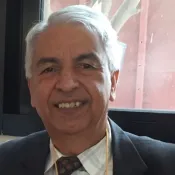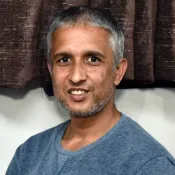2022 State of the World's Volunteerism Report: Implications for Policy
About the discussion group
The 2022 State of the World’s Volunteerism Report provides strong evidence on how volunteerism can help build more inclusive people-state relationships. These collaborations are vital in expanding volunteers’ roles towards achieving and localizing the Sustainable Development Goals (SDGs). The report's key messages are:
- Volunteerism can help build a culture of collaborative decision-making
- Volunteerism can alter unequal power relations.
- Volunteerism offers diverse pathways to civic participation but remains unequal.
- Volunteers build bridges.
With these contributions in mind, how can policymakers and programme planners create an enabling environment for volunteerism to best contribute towards building equal and inclusive societies.
In this policy-focused discussion, we invite volunteers, volunteer-involving organizations, government officials, NGOs and other stakeholders to reflect on the policy recommendations ( https://swvr2022.unv.org/chapter-7/) of this year’s SWVR. Some questions to frame the discussions:
- How can we better address the barriers faced by marginalized groups – such as persons with disabilities, rural women, youth, residents of informal settlements, key populations – so they can volunteer and participate actively in public decision-making?
- How can we strengthen partnerships and collaboration between various groups (e.g. community organizations, national volunteering institutions) at different levels (e.g. local, national, regional and international levels)?
- What sort of strategies and practices can we adapt to ensure that women’s voices and agency are optimized?
- How can we develop polices and programmes that build on volunteers existing expertise, knowledge and experiences? How do we value these contributions – especially informal ones?
- How can we create better tools to measure volunteerism and its contribution to development – especially in the Global South?
In reply to (No subject) by chrismillora

SWVR 2022 has shown that volunteerism exists in many different forms. While some might be involved in volunteering at the individual level, others might work at some organizational level. Likewise, we see that there are community-level organizations established or run by people themselves and there are state agencies working on volunteering. We also know that volunteerism has been taking place because of varied reasons like religion, culture, philanthropy, etc. The point is, volunteerism has been taking place in varied forms, its actors are varied, and they work at different levels, at different capacities, and for different reasons. Whatever forms, levels, coverage, depth, and breadth volunteerism might be taking place, they are all contributing towards larger social goods. Of course, there are exceptions as some form of volunteerism might also be taking place with partisionary or with some harmful purposes from the perspective of broader human and planetary purposes. Excepting these, in one way or the other, voluntarism has been contributing towards national development, social wellbeing, capacity enhancement, and so on. So, the concern now is how to expand and consolidate it so that it could play the role of social transformation? For this, I think, we should begin by understanding different aspects of volunteering like who are volunteering, why are people volunteering, where are people volunteering (location/fields), etc. I think many countries critically lack systematically collected research-based information on these aspects. Likewise, we also need to understand why some areas, cultures, communities have a rich history of volunteerism and why some others do not have such traditions. That is, we need to know the drivers and barriers to volunteerism. State agencies at all levels (national, regional, and local level governments) need to be active in understanding the dimensions of volunteering through different means. This would tell us what are the opportunities and what are the problems and challenges at all levels of operation. Definitely, this would need a good amount of financial investments, and organizational and other arrangements. But the outcomes of such investments would be great in terms of social, cultural, and political benefits. No state, if they claim to work for the people and planet should be hesitant for such investment. Of course, careful planning is necessary for this. Such research-based evidence would provide a sound base to further the journey. This is a long-term and continuous journey but we must begin and expand. Such a base would provide a good reason where to focus, and what to focus.

While conducting research for two communities of Nepal for State of World Volunteerism Report 2022 selecting two cases of Barghar and Guthi leads extensive volunteering practices which are conducted to conserve nature which was closely associated with the culture of people. There were such efforts of volunteers to connect nature and culture of Tharu and Newar people which can address the issues of climate change at present.
Recently, Ministry of Youth and Sport also is formulating the National Volunteering Policy, Nepal (which is not yet approved from Government of Nepal) to recognize such traditional forms of volunteerism to develop resilient societies thereby increasing participation of the people including Non-Residents of Nepal, civil society, students. Policy Research Institute drafted the National Policy on Volunteerism and Youth Advocacy Nepal has been disseminating the policy throughout the country for collecting feedback. The policy aims at making volunteerism systematic in Nepal with preserving traditional heritages and wisdom, bringing innovation and newness, developing a mechanism to regulate volunteers. Such policies also help to increase people participation addressing the issues of climate change.


In reply to (No subject) by Jurgen Grotz

In reply to (No subject) by Amy Sanders
Discussion Moderators


Discussion Members





How to join
Share your questions, ideas and experiences! To join the discussions, simply:
- Create a user account here
- Once your account has been activated, log in here (Please make sure to check your spam).
- Then go this discussion forum
- Select the second tab, 'Discussion' to leave a comment and engage with other participants.
- For any technical issues, contact us here

How can we better address the barriers faced by marginalized groups – such as persons with disabilities, rural women, youth, residents of informal settlements, key populations – so they can volunteer and participate actively in public decision-making?